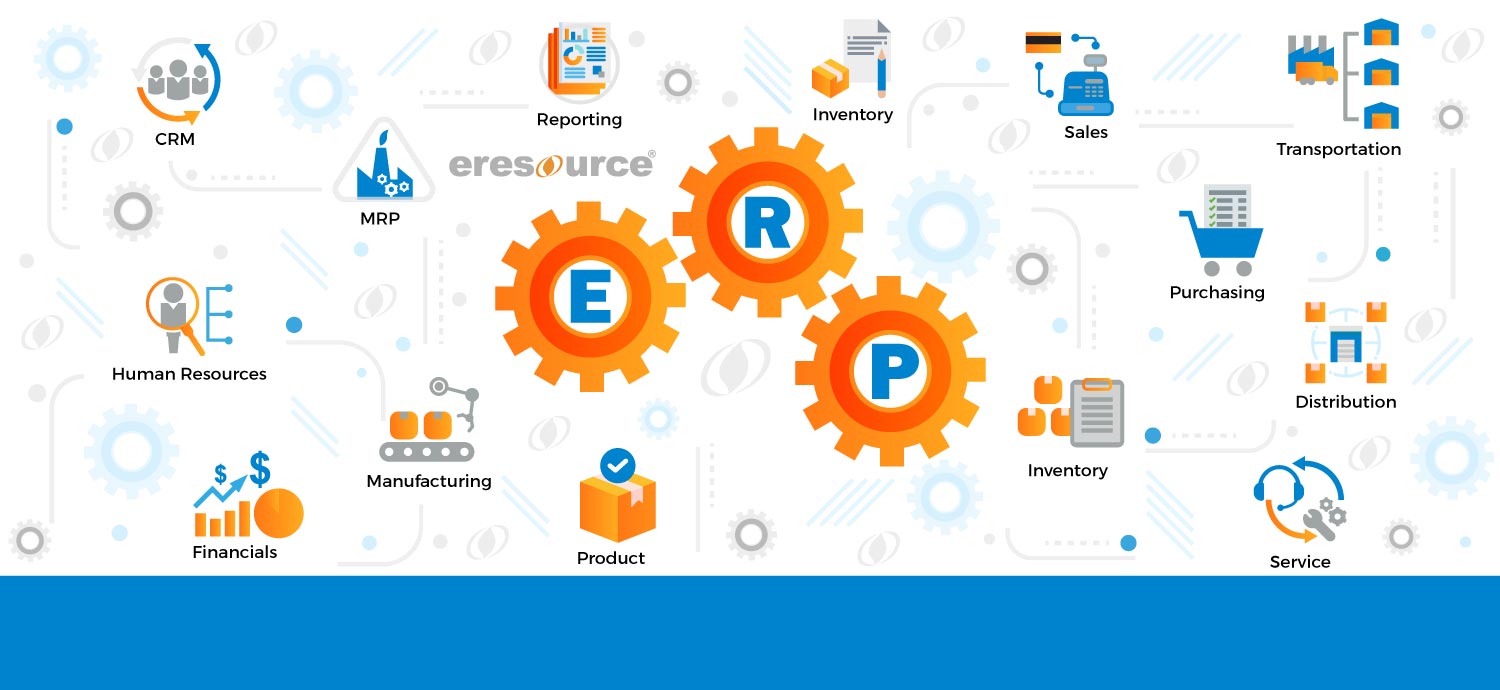Concept of ERP
In today’s competitive world many major companies have decided to use a popular tool that has evolved over the past few decades. ERP, the descendant of MRP II offers the “answer” to the economic and productivity troubles of manufacturing and service enterprises. Thus, understanding the basic concept of ERP software is very important.
In order for a software system to be considered ERP, it must provide an organization with functionality for two or more systems. While some ERP packages exist that only cover two functions for an organization (QuickBooks: Payroll & Accounting), most ERP systems cover several functions.
The term ERP originally referred to how a large organization planned to use organizational wide resources. In the past, ERP systems were used in larger more industrial types of companies. However, the use of ERP has changed and is extremely comprehensive, today the term can refer to any type of company, no matter what industry it falls in. In fact, ERP systems are used in almost any type of organization – large or small.
ERP systems today can cover a wide range of functions and integrate them into one unified database. For instance, functions such as Human Resources, Supply Chain Management, Customer Relations Management, Financials, Manufacturing functions and Warehouse Management functions were all once stand alone software applications, usually housed with their own database and network, can now fit under one umbrella
As in any integrated System or Unit, the performance of each one of the parts of an Enterprise has an impact in his cumulative performance results. Specifically, we can say that a 95% performance in independent vital enterprise elements (Item master, Bills of Materials, Production Master Schedule Adherence, Inventories Accuracy, Production Orders Accuracy and Purchase Orders Accuracy), will reflect a cumulative 75% in a ERP environment. This means a percentage of failure possible in productivity terms. Here is where we should support and combine this useful tool with a business strategy based on the desired administration tendency or theory.
On this sense, it is vital to note the point on administration before deciding which ERP solution is the one you will be using, you need to have solid administration principles (no matter which administration tendencies you decide to choose) and strong knowledge of ERP methodology.
This will translate into synergy between areas that will allow organizations to have highly effective processes with a continuous success. Only by creating a deep understanding of this philosophy you will have the certainty of obtaining the best results, as well as being in position to face and take proactive actions for any obstacle you could find in the road. If you have not this reference point, your efforts will deliver the wrong results.
Also Read – Best ERP Software for Manufacturing in India
Categories
Register for Free Demo!
Recent Post
-

eresource ERP 360 - an
11th Apr 2019 -

A competitive ERP system for
17th Apr 2019 -

Auto components manufacturing industry has
17th Apr 2019 -

Make the best use of
17th Apr 2019






